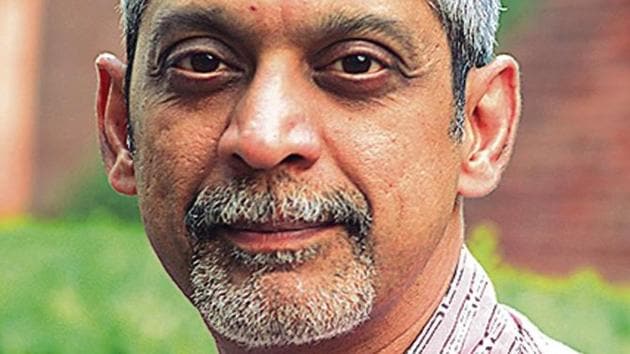Schools must reopen soon, those at lowest risk suffering the most: Vikram Patel
The two questions seek to find out whether the person has a very low or depressed mood, and the loss of interest in everyday activities, and this will need to be followed by a diagnostic assessment.
Schools must reopen soon or else the fallout for students will be monumental, said Harvard Medical School professor Vikram Patel on Friday, as he added that the “extremely extraordinary” uncertainties arising out of the coronavirus disease (Covid-19) pandemic were affecting everyone’s mental health.

“I pray that our country moves rapidly towards reopening schools. We have the weather in this country to be able to run schools outdoors where we know the risk of transmission is very little. We need to do this quickly, otherwise the cost on the generation of kids who would have lost almost the entire year of education is going to be monumental,” Patel said on the concluding day of the 18th Hindustan Times Leadership Summit.
“What we have done is completely thrown our younger generation under the bus; we have failed to recognise that this disease, which almost has zero risk for people under the age of 18, yet this demographic has had to pay the biggest price of all in order to safeguard the rest of the population,” he said.
Patel, professor of Global Health at the Harvard Medical School, said that the pandemic had different kinds of impact on different age groups but the uncertainties that have arisen due to the pandemic affected everyone’s mental health.
“These extremely extraordinary uncertainties are affecting everyone’s mental health. Whether these will translate into an increased tide of mental illness still remains to be seen but there is always a risk that it will happen.”
“The National Health Systems Resource Centre’s strategy for the identification of NCDs [non communicable diseases] early in the community using ASHAs [accredited social health activists] for screening has now added a screener for depression...We now have a tool that ASHAs can use which is a set of two questions to detect potential cases of depression who can then be asked to go to the health and wellness centre or the primary health centre for further assessment. We’re also developing scalable ways of training ASHAs to deliver psychological treatments for depression,” Patel, who co-founded the not-for-profit Sangath in 1996 to empower community resources for psychological therapy, said.
The two questions seek to find out whether the person has a very low or depressed mood, and the loss of interest in everyday activities, and this will need to be followed by a diagnostic assessment, he said.
“We all know that this particular pandemic and the control strategies is really what has affected our mental health in tremendous ways. It has disproportionally affected different sections of community; for example, those groups of the population whose employment prospects have been extinguished altogether and they are already concerned that certain kinds of work will no longer even exist, or will be greatly diminished post pandemic.”
One of the fallouts of the pandemic has been the shutting down of schools, which Patel said, play far more fundamental functions, particularly for the poorest children in India as they get the main meal of the day there. Schools are also where children get a range of other health care interventions, and where they learn to play.
“We have ignored the fact that more than 80% of our children live in households where they did not have access to a good quality internet or a device. So, we have also further worsened the inequalities,” he added.



